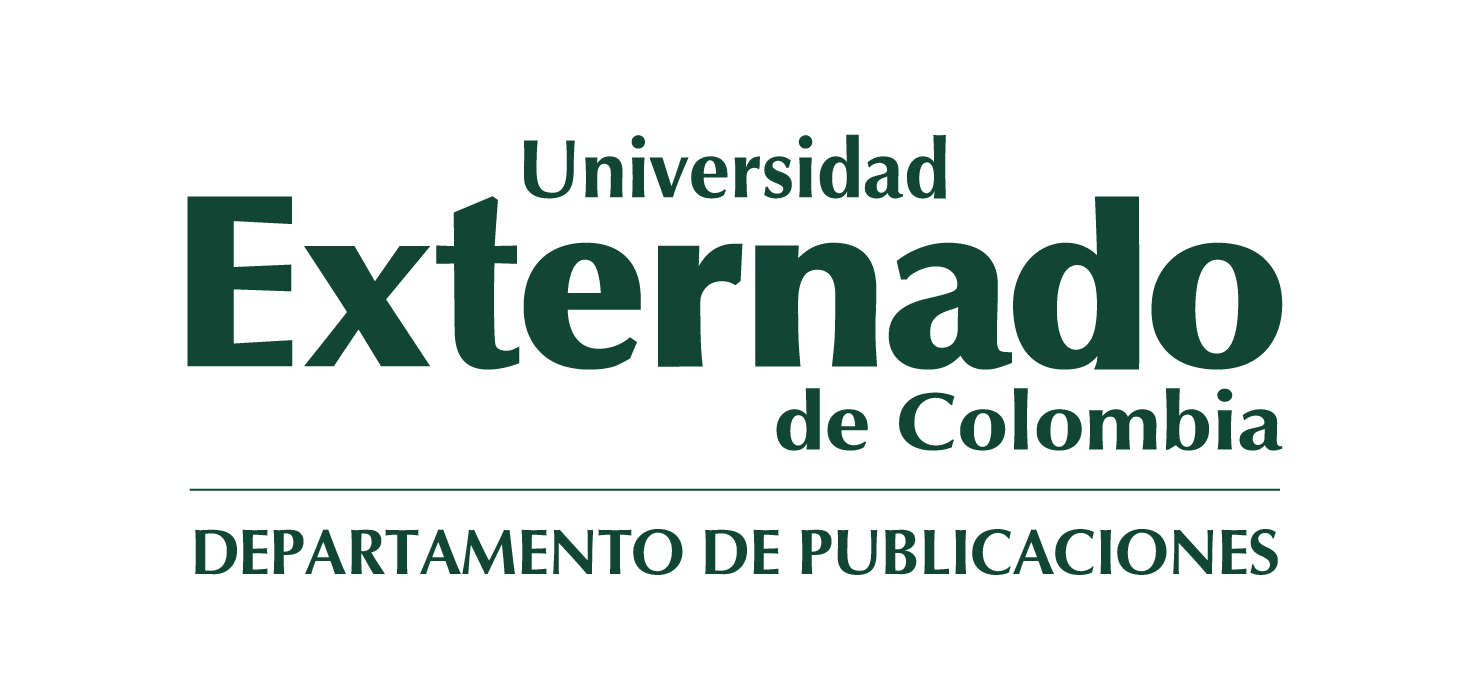A lo largo de estos años, la colección ha mantenido varios de sus aspectos característicos. El primero de ellos, y quizás el más importante, ha sido la apertura de esta rama del sistema jurídico a diferentes enfoques, tal como lo exige el linaje pluralista, democrático y liberal del Externado. Es evidente que los autores han gozado de autonomía para identificar los temas y el alcance de su investigación, de modo que los lectores puedan encontrar en cada uno de los volúmenes diversos puntos de vista en los análisis jurídicos realizados. Sin dogmatismos, sin lineamientos ni condicionamientos, más allá de las técnicas formales y jurídicas que permiten validar su calidad, valiosos escritos de distintas fuentes han nutrido la colección, dando a conocer múltiples perspectivas del derecho ambiental, desde estudios histórico-jurídicos y jurisprudenciales, hasta análisis de casos y evaluaciones regulatorias nacionales y extranjeras.
PRESENTATION
It's been twenty years since the Department of Environmental Law at the Externado University of Colombia launched the Readings on Environmental Law collection. At that time, its creator, Óscar Darío Amaya Navas, questioned the role of law in preserving nature, suggesting that it should consist of preventing its deterioration, promoting effective sanctions to counteract it, and developing effective incentives within the framework of a policy consistent with the environment (Amaya Navas, 2000).
Since the first volume of the collection, we have witnessed how environmental law has covered not only the actions Amaya envisioned but many more. As the environmental crisis worsens, various issues are subject to legal intervention, with the aim of achieving the preservation of the natural environment, which remains the central objective of this branch of the legal system.
Over the years, the collection has maintained several of its distinctive features. The first, and perhaps most important, has been the openness of this branch of the legal system to different approaches, as required by the pluralist, democratic, and liberal nature of the Externado. It is clear that the authors have enjoyed autonomy in identifying the topics and scope of their research, allowing readers to find diverse perspectives in the legal analyses they undertake in each volume. Without dogmatism, guidelines, or conditions, beyond the formal and technical legal frameworks that validate their quality, valuable writings from various sources have enriched the collection, revealing multiple perspectives on environmental law, from legal-historical and jurisprudential studies to case analyses and national and international regulatory evaluations.
Another distinctive aspect of the Lectures is that they provide the ideal space for professors to present the results of their research, which highlights their dual role as professors and researchers and confirms that they not only possess practical knowledge but have also dedicated part of their professional practice to legal research and doctrinal contributions in environmental law. This does not hinder the contributions of other experts, which provide access to the knowledge generated at other universities and institutions, both national and international.
In all these years the collection has maintained several of its characteristic aspects, the first of them, and perhaps the most important, has been the opening of this branch of the legal system to different approaches, as this is required by the pluralist, democratic and liberal lineage. of the Externado. It is clear that the authors have enjoyed autonomy to identify the topics and scope of their research so that readers can find in each of the volumes diverse points of view in the legal analyzes carried out. Without dogmatism, without guidelines and without conditions, beyond the formal and legal techniques that allow its quality to be validated, valuable writings from different sources have nourished the collection, making known multiple perspectives of environmental law, from legal-historical studies and jurisprudential, to case analysis and national and foreign regulatory evaluations.
CONTENIDO
TOMO I 7
TOMO 1I 8
TOMO III 8
TOMO IV 10
TOMO V IT
TOMO VI I2
TOMO VII 13
TOMO VIII 13
TOMO IX 14
TOMO X 15
TOMO XI 16
TOMO XII 17
TOMO XIII 18
TOMO XIV 19
TOMO XV 20
TOMO XVI 21
TOMO XVII 22
TOMO XVIII 23
TOMO XIX 24
TOMO XX 25
ÍNDICE TEMÁTICO 27
ÍNDICE DE AUTORES 55
CONTENIDO
TABLA DE ACRÓNIMOS 11
PRESENTACIÓN 17
Nuevas tendencias en el derecho ambiental: avances y desafíos 23
Angela María Amaya Arias
Acuerdo de Escazú y licenciamiento ambiental 81
Eduardo Del Valle Mora
El principio de prevención como fundamento del derecho ambiental 115
María del Pilar García Pachón
Las incertidumbres de la Evaluación de Impacto Ambiental (EIA) en las áreas protegidas de Colombia 149
Javier Alfredo Molina Roa
Tendencia jurisprudencial y casuística en los sistemas internacionales de protección de derechos humanos en relación con asuntos de contenido ambiental 193
Claudia Gafner-Rojas
¿Licitaciones públicas sostenibles? Presupuestos para la implementación
de los Objetivos de Desarrollo Sostenible (ODS) 221
William Iván Gallo Aponte
Rodrigo Maciel Cabral
Los compromisos ambientales del Acuerdo de Paz 257
Óscar Daría Amaya Navas
Posacuerdo y construcción de paz en Colombia. Una mirada
a la búsqueda de justicia ambiental 319
Luis Felipe Guzmán Jiménez
Diana Geraldine Quevedo Niño
Historia y evaluación de las celebraciones ambientales 353
Álvaro Hernando Cardona González
Delitos ambientales en Colombia. Análisis desde la perspectiva de las políticas nacionales de protección de los recursos naturales 387
Lorena Cabrera Izquierdo
Roberto Lastra Mier
Alba R. Vergara
Los océanos, un ecosistema vulnerable: ¿qué hace el derecho internacional frente a su manejo, conservación y cuidado? 419
Constanza Bejarano Ramos
Generación de residuos con riesgo biológico o infeccioso durante la pandemia de COVID-19 en Colombia: una consecuencia no dimensionada 463
Carolina Montes Cortés
Conservación y uso sostenible de las zonas marinas situadas fuera de la jurisdicción nacional: un nuevo acuerdo internacional en negociación 489
Juliana Hurtado Rassi
El posible responsable en las acciones colectivas en materia ambiental 519
Luis Guillermo Acero Gallego
Valoración jurisprudencial de los conflictos ambientales en Colombia: un estudio de caso comparado 553
Jorge Iván Hurtado Mora
Seguridad y soberanía alimentaria en los conflictos ambientales colombianos. Análisis de los conflictos actuales y la jurisprudencia de la Corte Constitucional 605
Jorge Andrés Obando Moreno
eBook
Impreso bajo demanda
Impreso
-

-
María del Pilar García Pachón
-
Abogada de la Universidad Externado de Colombia, especialista en Derecho Minero Energético de la misma casa de estudios. Magíster en Política y Gestión Medioambiental de la Universidad CarlosIII de Madrid (España) y doctora en Propiedades Públicas y Medio Ambiente de la misma universidad. Además, cuenta con un Diploma de Estudios Avanzados (dea) en Derecho Administrativo de la Universidad de Zaragoza (España). Actualmente es directora del Departamento de Derecho del Medio Ambiente de la Universidad Externado de Colombia, profesora en diversos programas de posgrado de la misma universidad y consultora independiente.
-
Impreso
Catálogo Universidad Externado:



